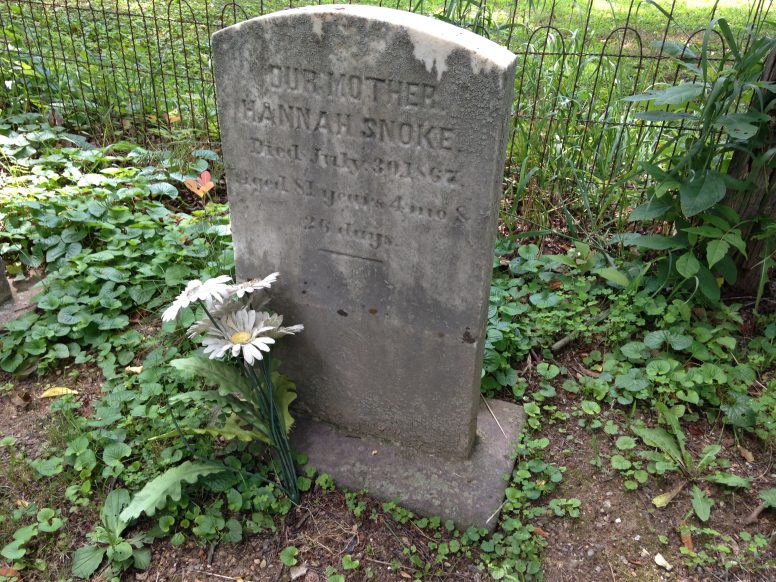- Home
- Daily Meditation
Send Someone to Help Me
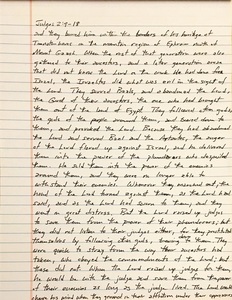
Judges 2:9-18
Synopsis Judges 2:9-18 6/3/2018
After Joshua’s generation completely died out, the next generation arose. They didn’t really know God first-hand. This generation began to serve the false gods of the Canaanites.
God was provoked by their faithlessness. As a result, the Israelites began to lose power. They often ended up actually under the power of the nations they were supposed to have displaced.
In their distress, the Israelites were in the habit of crying out to the one true God, who would send judges. God was with the judges and protected Israel through the time of each judge.
Send Someone to Help Me
Really this was the pattern dating back from the time of the Patriarchs. Abraham followed God to Canaan. But once a famine came, he went to Egypt. It was there, in the midst of trouble that he cried out to God for rescue. Jacob likewise lived his life without much concern for God’s will, but he cried out to God when he needed rescue from Esau, the brother he had wronged. And the sons of Israel entered Egypt once again to avoid the ravages of famine in Canaan. And many centuries later, when they cried out from the enslavement of Egypt, God sent Moses and salvation.
When Am I Going to Cry Out?
All this crying out in distress – is it a sign of weakness or indolence? I mean, each one of these ancient people made their own situation through their own decisions – that were usually contrary to what they knew God wanted. Basically the stories all read the same. A person gets to the point that they can’t manage things on their own. In the midst of their trouble, they say, “Jesus take the wheel”. And even though no one would say any of them actually deserved His help, He was faithful.
And that’s me. Too often I make decisions without considering God’s view on a matter – especially what He values. Then, things don’t work out the way I wanted them too. In the midst of my trouble I say, “Lord save me!” And though no one who knows me would say that I deserve God’s help, yet He saves me anyway.
That’s His love for me. That’s His love for you.
“In my distress I called out: LORD! I cried out to my God. From his temple he heard my voice; my cry to him reached his ears.” Psa 18:6
Never Fear to Be a Contradiction
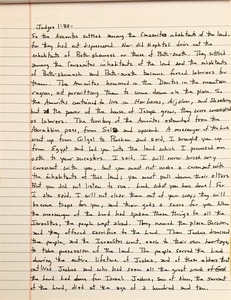
Judges 1:32-2:8
Synopsis Judges 1:32- 2:8 6/2/2018
In the time of the judges, the situation on the ground for much of Israel was indeterminate. The tribes had not been able to take-over certain regions of the Promised Land. And as a rule, they were more successful in taking possession of the mountain regions. But they seemed to consistently struggle to displace the people on the plains. This had to do with differences in technology – especially their iron chariots. On the plains the chariot was a devastating military force. But these were much less effective in rough, mountainous territory.
So, living with their adversaries became a new norm. But the Israelites were reminded by God not to make a covenant with the peoples they were not yet able to force out.
The Mountain People
It was easier for the Israelite army to take the highlands and the mountains than it was on the plains. In the mountains, traditional mass warfare and military technology mattered less than communal relationships, endurance and agility.
The mountains are for guerilla fighters.
Never Fear to Be a Contradiction
Everything about Christian faith is counter-intuitive. A crucifix as a symbol of peace and hope. A constitutional willingness to be misunderstood and maligned. A determination to love in the face of hatred.
What of this could attract a convert? It is a marketer’s nightmare. It makes me think; what post-modern person really wants this? Or, who could sell the life of a Christian? Who could persuade someone to live the Way of Givenness? Who wants to be a part of Authentic Community?
And yet here they come. Up to the mountains. Up where there is authentic relationship. Up where there is a transcendent power. Up where the fight for meaning and significance isn’t selfish.
Up to inquire. Willing to give up the fine clothes and sumptuous food. Deciding against the chase for wealth and power and pride. Seeking something to believe in.
That was atheist me thirty years ago. I wasn’t the last to inquire.
“This God who girded me with might, kept my way unerring, Who made my feet like a deer’s, and set me on the heights, Who trained my hands for war, my arms to string a bow of bronze” Psa 18:33-35
The Things I Have Left Undone
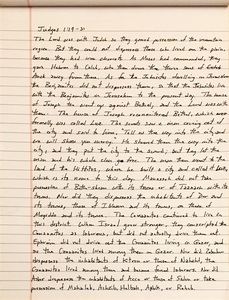
Judges 1:19-31
Synopsis Judges 1:19-31 6/1/2018
The tribes of Judah and Simeon combined forces and were successful in expanding the conquest in the south. Benjamin settled with the Jebusites in Jerusalem.
Manasseh and Ephraim went against Bethel. They sent a spy ahead to reconnoiter the city. As had been done with Rahab at Jericho, a local man was offered refuge if he would assist Israel in gaining access to the city. The “house of Joseph” was successful in capturing the city.
However, there were many other cities where the Israelites were incapable of displacing the people who lived in the land. As a result, they began living with the nations that they could not displace.
Unfinished Conquest
The challenge was in the unfinished conquest. Numerous cities throughout the Promised Land had been captured and populated. But not all of the cities. The scripture doesn’t really say why the Israelites didn’t force the Canaanites out, only that they didn’t.
The Things I have Left Undone
It’s a reminder. The things I intended to do but didn’t finish – haven’t finished. I had a plan. I took initiative. I risked for the reward. I stepped out in faith.
But I didn’t finish.
Something came up. All sorts of things showed up. Seven children in 9 years. I stopped thinking about goals. We found a groove where we could keep everything together and we held on to that. And that became our new norm. And we forgot that we had dreams and goals. And we forget that we had a purpose and mission.
But maybe we didn’t forget. Maybe that’s too strong. Maybe we just stopped thinking about it. It slipped out of our consciousness. It slipped out of my consciousness.
But it will come back. I didn’t forget entirely. You haven’t forgotten entirely. But when it does come back, let’s pay attention.
“Oh, that today you would hear his voice, harden not your hearts as at the rebellion in the day of testing in the desert” Heb 3:7
Thumbs and Toes and a Fortunate Sinner
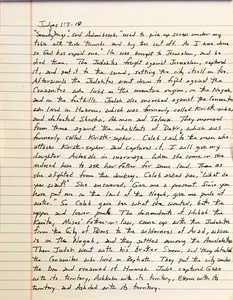
Judges 1:7-18
Synopsis Judges 1:7-18 5/31/2018
Adonibezek was a king captured by the warriors from Judah. He maimed his adversaries by amputating their thumbs and big toes. So, in accordance with the law, the Judahites did the same to him.
The tribes of Judah and Simeon joined forces and won multiple victories against the Canaanites.
Thumbs and Toes
Adonibezek was a ruthless and cruel man who maimed his adversaries and then humiliated them by making them scavenging beggars. Presumably the idea was to instill fear in the hearts of any other potential adversaries.
It’s interesting that he recognized a certain justice in being maimed by the Judahites, acknowledging that his punishment was both just and from God.
I am a Fortunate Sinner
OK it’s true – I’ve never actually cut off anyone’s thumbs or toes. But that doesn’t mean I’m not a sinner. The law has shown me that the power of my selfishness is enough to prevent me from entering into the possibility of my life.
I am a sinner.
I have lied. I have cheated. I have stolen. I have done every imaginable sin – and even if I haven’t actually transgressed in my actions, there is no sin common to man that I have not, at least, wanted to commit.
The awareness that I deserve justice is like a strange gift.
I deserve to lose my eyes for all the eyes that I have injured. I deserve to lose my teeth for all the teeth I have smashed. I deserve to lose my thumbs for all the thumbs I have broken. I deserve to lose my life for all the lives I have wrecked or destroyed. The guilt I feel because of my sins overwhelms me with shame.
And this knowledge, unpleasant as it may be, opens up the possibility of salvation. My iniquity drives me to cry out for mercy from the one great judge who has the real power to forgive.
“But that you may know that the Son of Man has authority to forgive sins on earth” he said to the paralytic, “I say to you, rise, pick up your mat, and go home.” Mark 2:10
You’ve Got to Cope
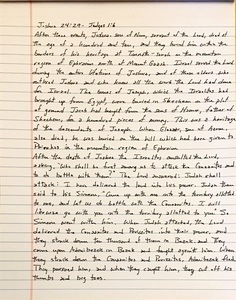
Joshua 24:29-Judges 1:6
Synopsis Joshua 24:29-Judges 1:6 5/30/2018
Joshua died at the age of 110 years. He was buried in his adopted town of Timnath-serah, in the mountains of Ephraim.
It was noted that the patriarch Joseph’s bones, which the Israelites had carried throughout the exodus from Egypt, were finally buried at Shechem. Similarly, the high priest Eleazar died and was buried on the hill that was given to Phinehas, his son.
After Joshua’s death, the Israelites consulted the Lord. Judah was selected to lead the next phase of conquest.
The Loss of a Nation
So how does this feel to the Israelites? As long as they had known God, Joshua had been around. He served at Moses’ right hand. He dwelt at the tent of meeting day and night. He led the army. He took up the mantel when Moses died.
And suddenly he was dead and there is no obvious person to replace him. The grief and the sadness were only eclipsed by the uncertainty of what might happen next.
You’ve Got to Cope
Grief is the emotion that emerges as a result of loss. It is the desire to retain something that has been lost, irretrievably, forever. It’s an eternity-sized frustration. My mind cannot imagine life without the thing that was lost. As a result, I can’t reconcile myself to the loss without feeling the pain of the loss. And I don’t want that pain.
But loss is a natural and unavoidable part of life. As it turns out, a big part of life. Death, divorce, abandonment; I don’t want any of it. Yet it comes nonetheless. And somehow I have to deal with it.
Interestingly, the grief of loss is always a watershed moment – it invariably drives me in one of two directions. I will either seek out things that absolutely endure so the loss can’t affect me again. Or, I will try my hardest to think about something else.
If I decide to try to forget, I end up hiding from the pain that I can’t reconcile. Sometimes I use drugs or alcohol, or libertine indulgence, or I eat far too many cheese puffs or I find some new friends and worship their god – though deep-down I know it is no, true, “God”. Whatever I choose, I’ll find a way to keep the pain at bay for as long as possible. I’ll find a way to cope – but not really cope. I remain affected. I’m afraid. I’m withdrawn. I’m alone in a room of people I call friends. There’s a cup in my hand and a smile on my face yet I’m filled with despair.
But if instead of hiding I look for things that cannot be taken away, I find only one real answer: The God of all creation. I can never lose Him, and I will never be lost by Him. My all-in-all.
“one God and Father of all, who is over all and through all and in all” Eph 4:6
You May Not Be Able to Serve the Lord
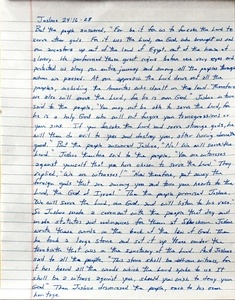
Joshua 24:16-28
Synopsis Joshua 24:16-28 5/29/2018
The people were in a dialogue with Joshua. He had invited the Israelite leadership to Shechem for a final audience before his impending death. In the course of this conversation, the Israelites asserted their commitment and determination to serve the Lord.
Joshua questioned whether or not they could actually serve the Lord because of their persistent tendency to seek foreign gods. The people insisted they could and would serve the Lord.
With this, Joshua made a covenant with the people before sending them away.
You May Not Be Able to Serve the Lord
It’s kind of strange thing to say: “You may not be able to serve the Lord.” Why would Joshua question the Israelite’s determination to serve God in such an offensive way?
How Would I Like This?
I’m trying to imagine someone saying to me, “You may not be able to serve the Lord.” My natural tendency would be to take offense. I’d want to show the person that I could indeed serve the Lord, and probably better than most people.
And yet, I completely agree with St. Augustine. I can do no really good thing on my own, but only by the Holy Spirit that dwells in me. So yes, it’s true – I can’t serve the Lord. I need the grace of God even to serve God.
And in this sense, it’s all mercy and grace. God’s mercy and grace mysteriously working toward a purpose and potential that I really can’t even imagine. To the extent that I’ve experienced healing and salvation, it has all come entirely because of God’s goodness to me.
“Blessed be the name of the LORD both now and forever.” Psa 113:2
The Testimony of a Lifetime
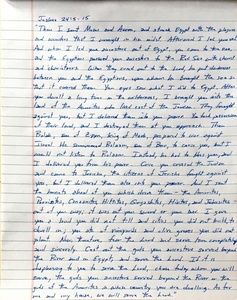
Joshua 24:5-15
Synopsis Joshua 24:5-15 5/28/2018
In his final audience with the Israelites, Joshua began prophesying in the name of the Lord. Through him, God recounted all that had transpired in the exodus from Egypt and the conquest over the Promised Land.
In particular, God retold the story of how Balak had enlisted Balaam to curse the people but that God had forced him to bless the Israelites.
With the completion of his prophecy of remembrance, Joshua then proclaimed his allegiance and commitment to serving the Lord.
Continue to Serve the Lord
There’s always this question at the end of a person’s life: Am I satisfied? Was this what I wanted it to be. Would I do it the same again?
Joshua answered with an emphatic “Yes!” He wanted everyone to know that, if he had to live his life again, he would follow God without hesitation. Joshua left this world as a man with no regrets.
The Testimony of a Lifetime
What I want for myself, and for my wife and my children and for every Catholic Christian is that you find your genius and live it fully. That’s what Joshua did. It’s why he had no regrets. It’s also why his life story is a powerful testimony of what’s possible in each of our lives if we trust God wholly.
Our faith tradition is designed to set you free from everything that holds you back from the possibility and purpose with which God created you.
“until we all attain to the unity of faith and knowledge of the Son of God, to mature manhood,* to the extent of the full stature of Christ” Eph 4:13
The Distinction of Prophecy
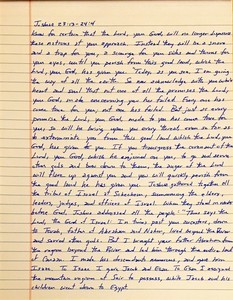
Joshua 23:13-24:4
Synopsis Joshua 23:13-24:4 5/26/2018
Joshua had grown old. He was dying. So he gathered the leaders of the Israelites at Shechem. He warned the Israelites to not intermingle or intermarry with the Canaanites. He challenged them to acknowledge God’s absolute faithfulness.
Then, the word of the Lord was spoken through Joshua. The Lord reminded the people of the long journey from the time of Terah, through Abraham, Isaac, and Jacob.
The Distinction of Prophecy
Joshua did not commend everything he spoke to the Israelites as prophecy. He began by reasoning with them and reminding them of God’s faithfulness. But he ended his communication with the people in a prophetic utterance. The Holy Spirit, speaking through the prophets, gave an insight into God’s perspective on the Israelite nation.
The Perfect Witness
In a court of law, an expert witness contributes a special kind of testimony. Basically, an expert’s testimony is irrefutable. It must be accepted. And every other testimony that might be offered can only be accepted to the extent it can be integrated with the expert’s testimony.
As Christian’s, this is what’s meant when someone says, “Let’s take this to the Word”, or when people say, “Let’s look at this in the light of eternity”. The scriptures are the inerrant word of God. We bring our challenges and difficulties, our hopes and successes, and gauge them against what we know of God through the things He’s said and the way that he has dealt with others who’ve gone before us.
“All scripture is inspired by God and is useful for teaching, for refutation, for correction, and for training in righteousness” 2 Tim 3:16
The Power of a Dying Word
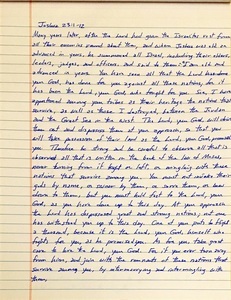
Joshua 23:1-12
Synopsis Joshua 23:1-12 5/26/2018
It’s several years since the end of the conquest. Joshua assembled the leaders of the tribes of Israel at Schechem. Joshua was old. He sensed he was dying. So he invited leaders to a final address.
As he spoke, he reminded the Israelites of how God had gone before them in battle and had fought on their behalf. He encouraged them to remember the great conquest over the land. He wanted them to remain faithful and strong in their determination to follow the Lord alone. And he forbid the Israelites from becoming involved in the lives of the Canaanites that remained in the land, through either intermarriage or intermingling.
The Power of a Dying Word
Joshua knew that he was dying. He knew that the line of continuity would be broken. There was basically no one left who had experienced the entirety of the exodus from Egypt clear through the conquest of Canaan.
What’s more, there was no singularly designated leader over Israel. The Israelites were acting more like a confederation of tribes than a nation. The high priest was the only authority that all Israel recognized – but the high priest was never intended to lead the tribes.
Joshua felt the need to address the leaders of the tribes one last time before he died. They came to him at his request. He reminded them to keep covenant with God.
A Legacy of Wisdom
If you knew that today was your last day on earth, what would you say and to whom would you say it?
For some people, it might be a funny quip. For others, it might be an expression of affection for someone they care about. But for a leader, the relationship is often different. The true leader is deeply invested in whatever effort they gave during his or her life. So, when leaders come to realize they are dying, they give advice – they impart wisdom.
It’s sometimes said that we should live each day of our lives as though it was the last day of our life.
Let it be.
“Here is what I see as good: It is appropriate to eat and drink and prosper from all the toil one toils at under the sun during the limited days of life God gives us; for this is our lot.” Eccl 5:18
Resisting Rash Decisionmaking

Joshua 22:26-34
Synopsis Joshua 22:26-34 5/25/2018
Phinehas, the son of Eleazer, and the leaders of Israel questioned the construction of the altar east of the Jordan. The leaders of the tribes of Reuben and Gad insisted that they had made the altar only as a replica and memorial of the original.
Their motive was to create a legacy witness that would remind future generations from both Israel and the eastern tribes that they all sacrificed and served the one true God.
Phinehas the Questioner
Building an alternative place to worship God would have been a real threat to the existence of Israel. It would have stressed the community’s relationship with God by breaking the covenant. It would have also stressed the unity the tribes of Israel had enjoyed throughout the time of the conquest.
So the Israelite tribes massed their military forces near the Jordan river, in anticipation of a military strike on the errant tribes. However, before initiating the fight, Joshua and the leaders had the wisdom to assure they fully understood their circumstances. This prevented an unnecessary and destructive war.
Resisting Rash Decisionmaking
As human beings, we act on what we know (believe) but our motive is generated by what we value.
Is the thing I’m dealing with an existential threat or just the reminder of a bygone battle. The value of the thing kind of falls out from what it is. I don’t find myself saying, “should I be concerned about this existential threat?” I don’t find myself saying, “Should I move away from this rattlesnake?” No, the disvalue is visceral once I know that I’m dealing with a rattlesnake. I will move.
But the question, “Is this thing a rattlesnake?” – now that’s a question I better resolve before making my next move.
“Be not hasty in your utterance and let not your heart be quick to utter a promise in God’s presence. God is in heaven and you are on earth; therefore let your words be few.” Eccl 5:1







